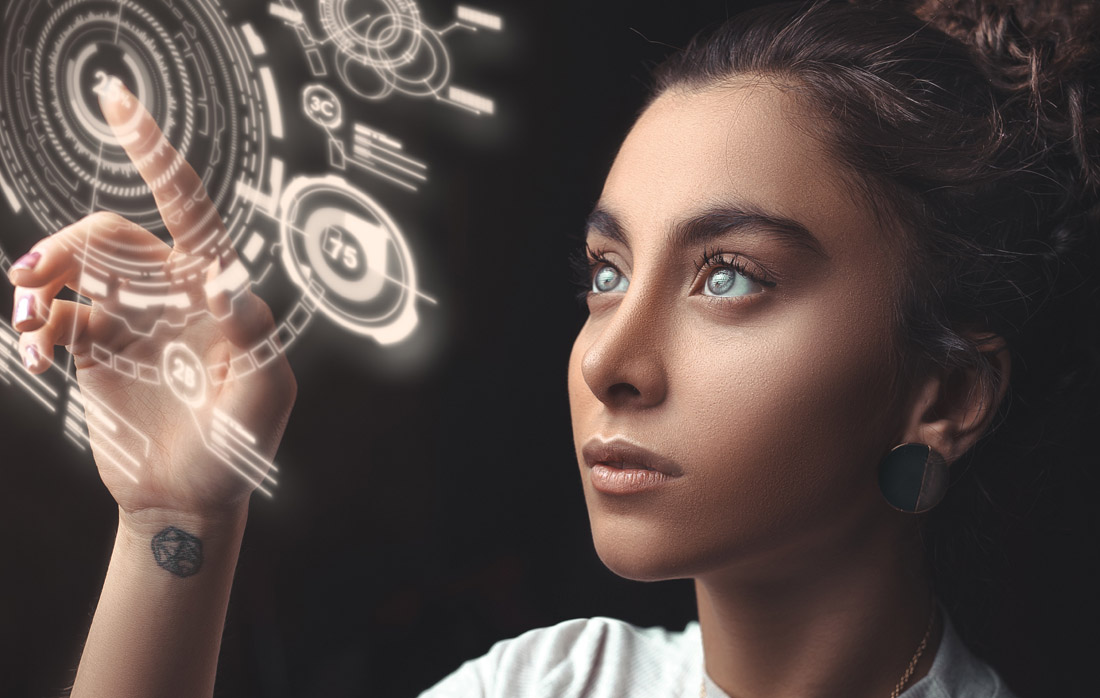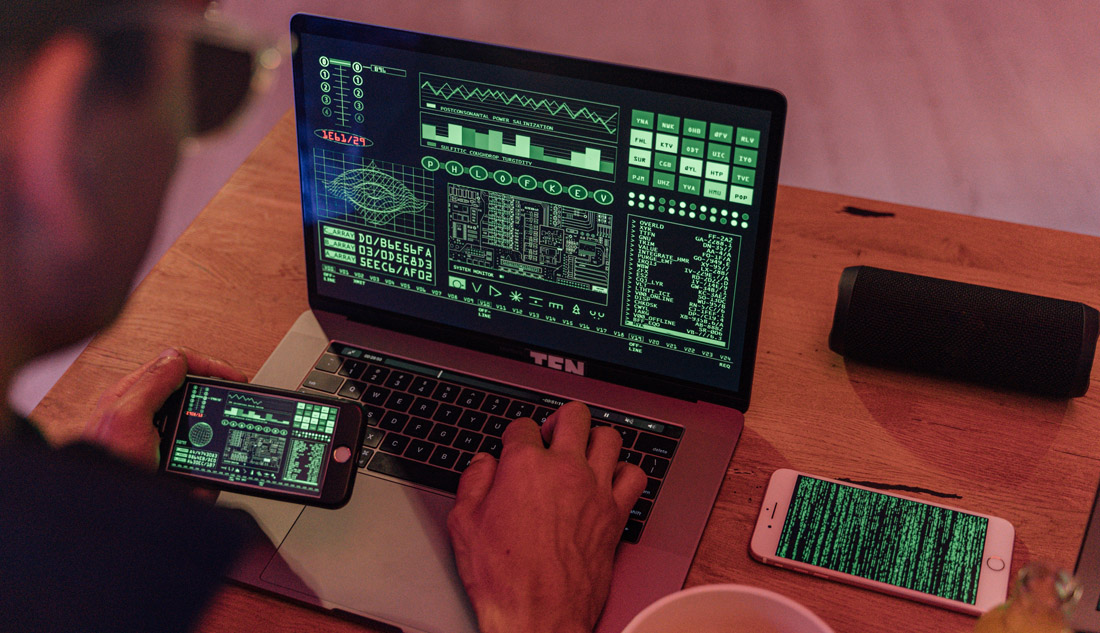Artificial Intelligence (AI) has become a transformative force across various industries and web design and web development is no exception.
The convergence of Artificial Intelligence (AI) and web design and development has opened up a world of possibilities for creating captivating and dynamic online experiences. With its ability to analyse data, recognise patterns and make informed decisions, AI has the potential to revolutionise the way websites are designed, enhancing user experiences and optimising design processes. In this article, we will explore how AI can improve web design and web development and the key areas where its influence can be seen.
Related Articles:
What is AI (Artificial Intelligence)?
Artificial intelligence is the simulation of human intelligence processes by machines, especially computer systems. In simple terms, AI systems function by taking in a lot of labelled training data, carefully examining it to find connections and patterns and then using those patterns to make predictions about what might happen in the future. By utilising this approach, a chatbot (such as ChatGPT or Google Bard) can be trained with various text examples to develop the ability to engage in lifelike conversations with people. Similarly, an image recognition tool can analyse millions of examples to learn how to accurately identify and describe objects within images. Thanks to the advancements in generative AI techniques, it is now possible to create remarkably realistic text, images, music and other forms of media. These techniques are continuously improving at a rapid pace, opening up new possibilities for AI-generated content.

How AI can improve web design and web development
Personalised user experiences
AI enables web designers to create personalised experiences by analysing user behaviour, preferences and demographics. Websites can dynamically adapt their content, layout and functionality through machine learning algorithms to match individual user needs. By offering tailored recommendations, personalised interfaces and customised interactions, websites can engage users on a deeper level, fostering stronger connections and boosting conversions. For example, AI can be used to analyse a website’s content and provide alternative text for images, making it easier for visually impaired users to understand the content. AI can also quickly change words from one language to another, so people who speak different languages can all read the same information without any trouble.
Automated design assistance
Traditionally, web designers spend countless hours creating wireframes, selecting colour schemes, and fine-tuning layouts. AI-powered design tools can automate and streamline these processes. Design assistants use special algorithms to create design ideas, give choices for layouts and even give instant feedback on design elements. AI-driven tools can automate repetitive tasks in web design, giving designers more time to concentrate on imaginative and strategic design choices. This includes focusing on areas like user experience (UX) design, interaction design and visual design, where human creativity and intuition are highly valued. For instance, AI in web design tools can perform a range of tasks to enhance images for the web. This includes resizing images, compressing them to guarantee swift loading times on the website, and converting them to various file formats as necessary.
Smart content creation
Content plays a vital role in web design and web development. AI can aid in content creation by analysing data from various sources and generating relevant, engaging, and SEO-optimised content. Natural Language Processing (NLP) algorithms can write product descriptions, blog posts and even social media captions, saving time and ensuring consistent quality. AI-driven chatbots and virtual assistants can also provide instant customer support and enhance user interactions. By using technology to handle boring and repetitive tasks and offering help with coming up with ideas, doing research, writing, editing, and improving content, AI can assist content creators in making better-quality content faster and more efficiently. However, it is essential to keep in mind that AI cannot replace human creativity and decision-making. Most successful outcomes are likely when AI is used to enhance, not substitute the skills and knowledge of content creators. With careful planning and execution, AI can be a valuable partner in the quest for creating outstanding content.

Predictive analytics for web design and development
AI-powered predictive analytics can be a game-changer for website owners. AI’s ability to analyse vast amounts of data enables web designers to make data-driven decisions. By studying user behaviour, AI algorithms can identify patterns, predict trends, and provide insights into user preferences. This valuable information can be utilised to optimise website layouts, improve navigation, make it more engaging for users and enhance conversion rates. AI-powered analytics tools can also generate reports and visualizations, helping designers gain valuable insights into website performance.
Automated testing and optimisation
AI facilitates the automation of website testing and optimisation. In web design, a website requires more than creating and designing before it is launched. A website must undergo tests and optimisation to confirm site performance and seamless user experience. Designers can employ AI-based testing tools to conduct A/B testing, analyse user feedback, and refine website elements in real-time. By constantly monitoring user interactions, AI algorithms can identify areas for improvement, such as enhancing page load times, optimising forms or improving mobile responsiveness. This ongoing process makes sure that websites are constantly improved to provide the best experience for users. Each year, the application of AI algorithms for intelligent test automation becomes more advanced and sophisticated.
Automated testing and optimisation
AI facilitates the automation of website testing and optimisation. In web design, a website requires more than creating and designing before it is launched. A website must undergo tests and optimisation to confirm site performance and seamless user experience. Designers can employ AI-based testing tools to conduct A/B testing, analyse user feedback, and refine website elements in real-time. By constantly monitoring user interactions, AI algorithms can identify areas for improvement, such as enhancing page load times, optimising forms or improving mobile responsiveness. This ongoing process makes sure that websites are constantly improved to provide the best experience for users. Each year, the application of AI algorithms for intelligent test automation becomes more advanced and sophisticated.
Coding assistance
Experienced programmers can use coding programs to help them write more code without having to type it all themselves. The job of a software engineer involves creativity, complex thinking, and deep knowledge of the project they are working on. Tools like Codex or Github’s Copilot can assist programmers by suggesting the next line of code or providing pre-made code blocks for them to use. Despite that, these tools are better suited for shorter and simpler programs, and their accuracy rates are not very high. For example, Codex from OpenAI has only a 37% chance of producing completely correct code. Nevertheless, even with its limitations, it can generate enough accurate code to speed up the programming process and make it easier. However, the human programmer needs to have enough experience to quickly identify and fix any mistakes that may arise when using these coding assistants effectively.

As AI continues to advance, we can expect to see even more exciting developments in the field of web design. Artificial Intelligence is reshaping the field of web design and web development, empowering designers to create more personalised, efficient and engaging websites. From personalised user experiences to automated design assistance, AI-driven solutions are revolutionising the industry. AI in web development works together with human programmers to make the development process smoother and faster. The current technology isn’t designed to write a whole project from scratch – it is designed to complement human programmers and make their jobs a little easier. Remembering that humans are still needed for web design and development is important. AI simply helps to improve efficiency and elevate the overall quality of web design. Embracing AI in web design is not about replacing human creativity. As AI continues to evolve, we can expect even more advanced applications and possibilities for web design, providing endless opportunities for designers to create immersive and impactful digital experiences for users worldwide.
If you have any questions or queries about any of the topics we’ve discussed, feel free to contact us and speak to a member of our team today – we will be glad to assist you.


